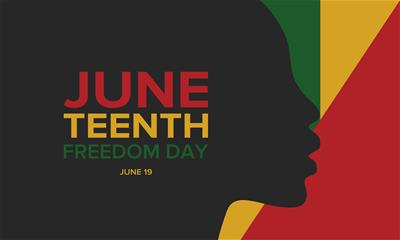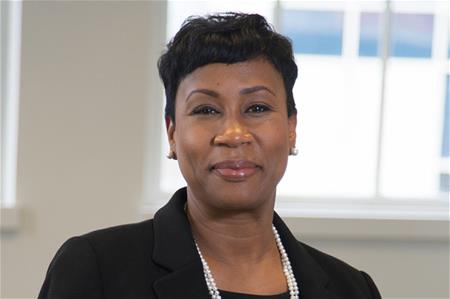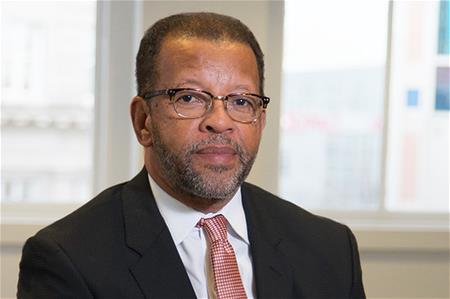
“Juneteenth means freedom. It means hope. It means Black dreams being realized. It means honoring our ancestors. It’s a reminder there is still so much work to do.”
- Jana Sanders, Self-Help Universal Banker in Charlotte, NC
Great news on this Juneteenth 2021: Congress overwhelmingly passed a bill making Juneteenth a federal holiday, and President Biden signed the bill into law on June 17.
Recognition of this day has been a long time coming, as many Americans still aren’t familiar with its history. Juneteenth – short for “June Nineteenth” -- marks the day in 1865 in Galveston, Texas that federal troops arrived to take control to ensure that all enslaved people be freed. Although President Lincoln signed the Emancipation Proclamation in 1863, it didn’t instantly free enslaved people – Union soldiers didn’t arrive in Texas until June 19, two years later. It wasn’t until that date that enslaved Africans in Texas knew that slavery had been abolished. Since then, annual celebrations have been held by African Americans as day of true independence.
Juneteenth is a time to celebrate freedom while remembering we still have a long way to go to achieve racial equality. The fight for civil rights and economic justice have always been at the heart of Self-Help’s mission. This week as we prepare to say goodbye to two esteemed colleagues at our affiliate, the Center for Responsible Lending (CRL), we want to lift up the remarkable work they accomplished to move our mission forward.
“A Guiding Light” -- Nikitra Bailey

After nearly 19 years, Nikitra Bailey – executive vice president at the Center for Responsible Lending -- is stepping down from CRL to continue her brilliant career with the National Fair Housing Alliance.
As a member of CRL’s executive team, Nikitra has played an integral role in developing and driving the strategic direction of the organization’s consumer protection and fair lending agenda. She advanced national and state public policy reforms that provide access to safe and responsible credit on affordable terms for families and communities underserved by the banking system. She led mortgage advocacy and served as the principal strategist for coalition partnerships that span civil rights, faith, women, labor, and community advocates across the nation. She also has led CRL’s development and operations teams. Most recently, Nikitra played a lead role in securing $10 billion for homeowners hardest hit by COVID-19 and secured targeted assistance of these funds for socially disadvantaged individuals (SDI) in the American Rescue Plan legislation.
Nikitra is the author of numerous reports and articles on predatory lending’s impact on people of color and women, and she has been a frequent contributor to American Banker, New York Times, Washington Post, Wall Street Journal, and the National Newspaper Publishers Association (NNPA) community newspapers. She has served as an expert witness to the Congress on the state of housing in America, housing finance reform, and mortgage lending discrimination. She has extended her expertise by serving on numerous boards of directors for groups focused on community economic development. She is also a member of the Consumer Financial Protection Bureau Community Advisory Board (CAB).
In a farewell event for Nikitra, Mike Calhoun, President of CRL, recalled times when Nikitra had stood firm against fierce opposition by special interest groups and called her a “warrior for justice.” Martin Eakes discussed her contribution in building key relationships, always in a completely authentic way, and said she has been a “guiding spirit” for our work. Team members expressed appreciation for her as a leader, mentor and great friend. We know those friendships will remain as Nikitra goes on to use her many gifts in the fight for racial equity and economic justice.
We should all carry with us her closing wishes for the work forward, which she borrowed from Amanda Gorman’s historic inauguration poem entitled “The Hill We Climb."
For there is always light,
if only we are brave enough to see.
If only we are brave enough to be it.
"Behind Every Glory, There's Always a Story" -- Keith Corbett
Profile by Jenny Shields, Self-Help media director

Keith Corbett has been a reckoning force at Self-Help for more than twenty years. He started in real estate but quickly found a home as advocate for racial equity as part of the Center for Responsible Lending, where his work focused on eliminating abusive financial practices at the state and national levels. To do that, he drew from his extensive background in finance and real estate, having not only served as vice president and treasurer of North Carolina Mutual Insurance Company, but also as a board member of the Financial Protection Law Center, the National Association of Realtors and the North Carolina Association of Realtors, and treasurer for the North Carolina State NAACP and the National Baptist Convention housing and economic board.
Across his tenure with Self-Help, Keith has seen and experienced his share of ups and downs. Like most African Americans working in the corporate business world, he has also endured his own set of challenges that cross the racial divide and illustrate the daily struggle for respect, equity and basic recognition Black Americans routinely face.
What gives him his strength and resilience?
It’s not a simple answer.
“I couldn’t do this without God’s intervention,” he explains. “God put me in this position to make a difference and gave me a platform to do it.”
He continues: “Sometimes I ask, God, why do you always put me in these fights? People come to you with their problems, hoping you will fight for them. I think I’m here to advocate for people who can’t advocate for themselves.”
Keith also pulls strength from a more earthly source – his mom. His words have the deep resonance of that famous poem by Langston Hughes, Mother to Son: “Son, life ain’t been no crystal stair…”
Keith’s father died young -- at 29. His mom didn’t finish high school. She had six kids, an 11th grade education and worked as a domestic. In short, she was a fighter.
Like many Black families, Keith was introduced to systemic racism at a young age. The family had no indoor plumbing until Keith was 14, as the city left its Black neighborhoods last on the list for water and sewer upgrades.
Keith also spoke about a time the family was shopping for clothes. They were all on an elevator when a white woman entered with her children and attempted to make them feel dirty, inferior and out of place. Even so, his mom was able to turn the tables and put the real problem – where it belonged. When a racist motorist used an ethnic slur to demean them, she chased him down.
In short, being a fighter is in his blood.
“I feel like I’m supposed to do this,” he reflects. “Statistically I was not supposed to make it. God has given me what I needed, maybe not what I wanted, but want I needed. God has equipped me. I’ve been blessed.”
He closes: Behind every glory there’s always a story. But the bottom line, if you’re not an advocate, you’re an oppressor. I live by that creed.”
With the help of his ‘unofficial sister’ Nikitra Bailey, another CRL colleague profiled here who is also a passionate advocate for racial justice, they built broad relationships among well-known leaders in the world of finance, government and grassroots civil rights. Both championed a deeper look at the systematic racism that hinders efforts of Black Americans to build wealth and attain financial equity that help shape Self-Help advocacy and lending policy.
Ironically, Juneteenth marks Keith’s last day with Self-Help, but we know his battle for racial justice continues.
***
We will miss Nikitra and Keith enormously, and wish them both well in their future endeavors.
To learn more about Juneteenth, check out these articles:
New York Times – So You Want to Learn About Juneteenth?
History – What is Juneteenth?
Yes Magazine – Why Juneteenth Should Be a National Holiday
Atlas Obscura - How Red Food and Drink Joined the Juneteenth Feast